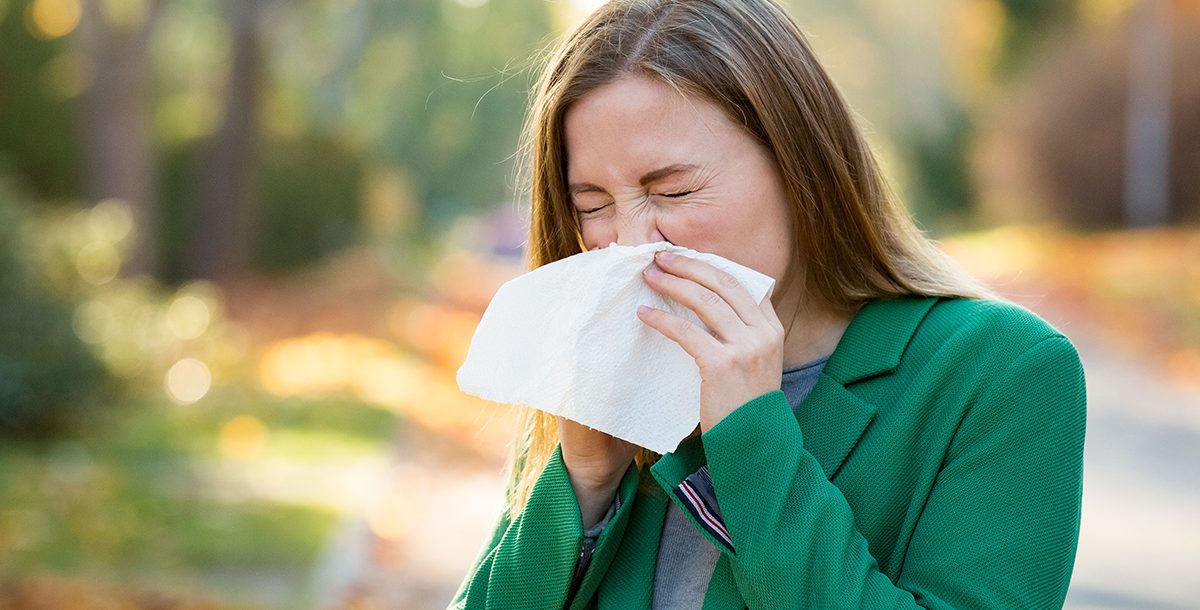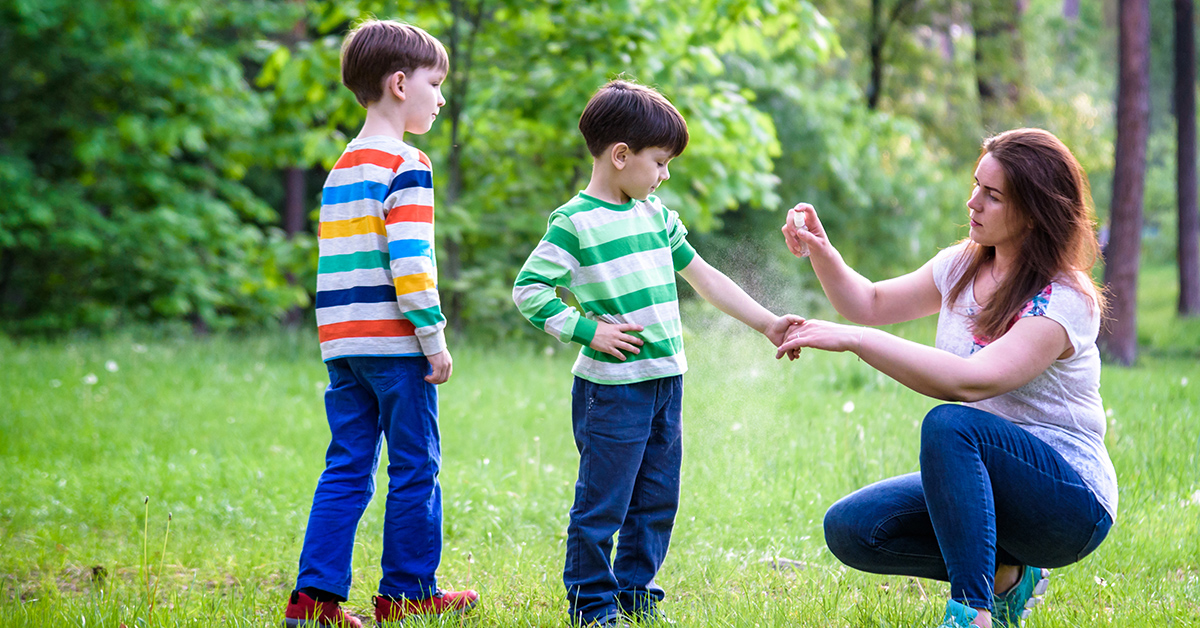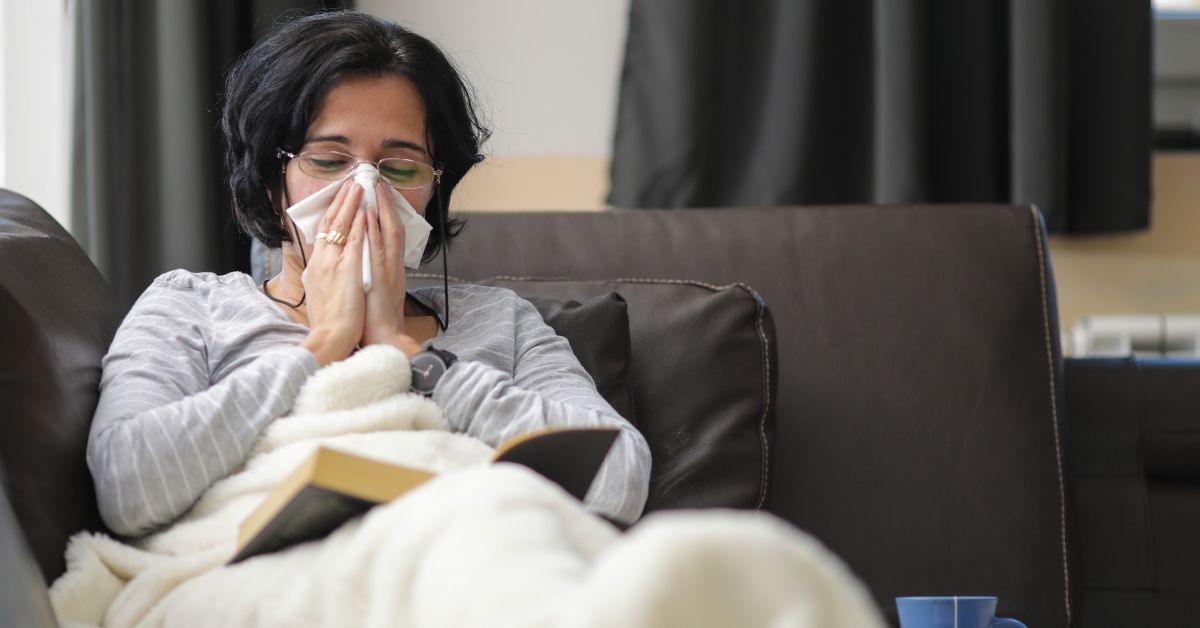Many surveys have shown fall to be the favorite season for Americans. Foliage, festivities and fall weather drive the season’s universal popularity across generations. Unfortunately, those fun features are accompanied by common fall allergies that afflict so many people.
Approximately 50 million people in the United States – nearly one in five – have allergies. An estimated 13 million Americans suffer from hay fever, primarily due to ragweed pollen.
These common fall allergies don’t wait until the leaves start turning and the weather cools down. You can begin to experience symptoms in late summer. If you sneeze and cough during certain times of the year, you may have seasonal allergies. It can be helpful to learn about triggers, symptoms and treatments so you can enjoy everything else the fall season offers.
What causes common fall allergies?
Some of the causes of common fall allergies include ragweed and mold. Ragweed produces pollen and is active until the first frost. Like tree pollen in the spring, this plant can bring misery to those who are allergic.
With more dampness from rain, mold can grow in the fall. Mold often grows in piles of leaves you might be raking or in stacks of wood. And finally, dust mites are more prevalent in the fall, as they thrive in colder weather.
What are seasonal allergy symptoms?
If you are allergic to mold spores or pollen, your immune system cells will treat these allergens as a threat and react by releasing substances such as histamine into your bloodstream to help combat them. As a result, you may experience symptoms such as:
- Sneezing
- Stuffy or runny nose (nasal congestion)
- Itchy, watery eyes
- Itchy mouth or skin
- Fatigue (often due to poor-quality sleep as a result of nasal congestion)
Does weather influence allergy symptoms?
Seasonal allergies can make you feel miserable and are tough to prevent since the environment triggers them. Several climate factors can influence the severity of your allergy symptoms. Pollen levels generally peak in the morning.
While rain washes pollen away, pollen counts can soar after rainfall. Pollen counts also surge when the day is windy and warm. When there’s no wind, airborne allergens are grounded. Ragweed, tree and grass pollens thrive during cool nights and warm days.
How can you avoid fall allergy symptoms?
While you can’t eliminate the causes of allergies completely, there are things you can do to lessen exposure and the effects. And, of course, you should talk to your primary care provider about your fall allergies so you can make a treatment plan together.
Here are a few tips to help you avoid fall allergens:
- Be aware of pollen and mold counts. Weather reports often include this information.
- Take a shower, change your clothes and wash your hair after being outside.
- Clear yard debris regularly to avoid mold growth.
- Treat any indoor house leaks right away.
- Keep windows closed to keep pollen out.
- Limit outdoor exposure and aim to go out later in the day when the pollen counts fall.
- Take your shoes off and don’t wear them inside your home.
- Use a dehumidifier to reduce dampness and prevent mold growth.
- Wash your linens in hot water.
- Keep pets that go outside bathed to avoid a buildup of pollen in their fur.
Is a fall cleaning helpful?
You often hear about doing a good spring cleaning. Well, it’s just as important to do a thorough fall cleaning to lessen your allergy exposure. Indoor allergens such as dust mites and mold thrive in your home during the humid summer months. So, fall is a good time to get busy cleaning.
Vacuum or dust from ceiling to floor. Remove all the cobwebs that accumulate in corners and around ceiling fixtures. Remove cushions from chairs and couches to vacuum all sides. Do the same with your mattress.
How do allergies relate to asthma?
Allergies can be a trigger for people with asthma. Allergic asthma is the most common form of asthma, a chronic lung disease.
How do you treat allergies?
Once you are in a full-blown allergy attack, all you want is relief. Many can manage their allergies by avoiding the allergens they are allergic to or taking over-the-counter medications, such as nasal sprays or using eye drops. Still, when symptoms can’t be managed, it may be time to see your primary care provider or specialist. They may also recommend one or more medications to control symptoms, including allergy shots.
So, are you ready to go hiking, view the beautiful fall leaves, go apple picking, attend Friday night football games and enjoy the many other fall activities? Remember to be aware of the pollen count for where you’re headed. The more you can do to avoid or alleviate the fall allergens, the better experience you’ll have.
Learn more about the primary care services we provide at Bon Secours.





